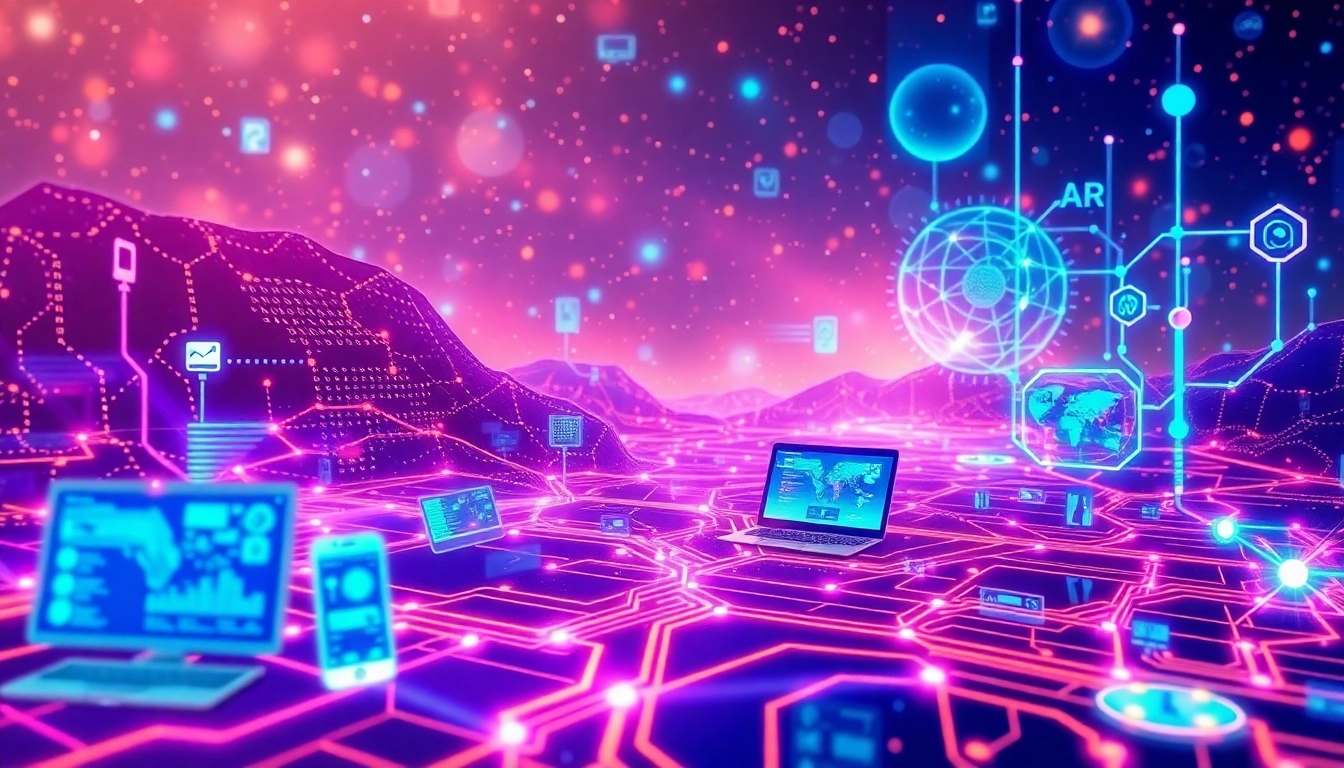In today’s rapidly evolving world, technology is the engine driving innovation, transforming industries, and reshaping daily life. From artificial intelligence to the Internet of Things (IoT), the landscape of technology is vast and dynamic. As we stand on the cusp of the future, understanding what technology truly is, its scope, and its impact is more important than ever. This comprehensive guide explores the core concepts, emerging trends, and ethical considerations surrounding technology, providing you with insights into how it continues to influence our world.
What Is Technology? A Complete Definition and Overview
Basic Definition of Technology
At its core, technology refers to the application of scientific knowledge for practical purposes. It encompasses tools, systems, and processes designed to solve problems, improve efficiency, and enhance human capabilities. Whether it’s a simple lever or a complex artificial intelligence system, technology is fundamentally about creating solutions that serve human needs.
Historical Evolution of Technology
Technology’s journey began with primitive tools made from stone and wood. Over millennia, it evolved through the Bronze Age, the Industrial Revolution, and into the digital era. Each phase marked significant leaps—such as the invention of the wheel, printing press, electricity, and computers—that continuously expanded human potential. Today, digital innovation accelerates at an unprecedented pace, driven by emerging technologies.
Core Components of Modern Technology
- Hardware: physical devices like computers, smartphones, and sensors
- Software: operating systems, applications, and algorithms
- Networks: infrastructure enabling communication and data transfer
- Data: the foundation for analytics, AI, and decision-making
Types of Technology: Exploring Key Categories
Information and Communication Technology (ICT)
ICT includes all technologies used for storing, transmitting, and managing information. It underpins the internet, mobile networks, and cloud computing, facilitating instant communication worldwide. Examples include social media platforms, video conferencing tools, and enterprise software.
Biotechnology and Medical Technology
This sector harnesses biological systems and organisms to develop medical treatments, diagnostics, and genetic engineering. Innovations like CRISPR gene editing and telemedicine are redefining healthcare quality and accessibility.
Industrial and Manufacturing Technologies
Automation, robotics, and advanced manufacturing techniques have revolutionized production processes. Industry 4.0 integrates IoT and AI to create smart factories that optimize efficiency and reduce waste.
Current Trends Shaping the Future of Technology
Artificial Intelligence & Machine Learning
AI development is arguably the most transformative trend, enabling machines to analyze data, recognize patterns, and make decisions. From autonomous vehicles to personalized medicine, AI is shaping multiple industries.
Quantum Computing
Quantum computers leverage quantum mechanics to perform complex calculations at unprecedented speeds. Although still in development, they promise breakthroughs in cryptography, material science, and optimization problems.
Emerging Technologies in Renewable Energy
Advances in solar, wind, and energy storage technologies are vital for combating climate change. Innovations like perovskite solar cells and smart grids are making renewable energy more efficient and accessible.
How Technology Impacts Society & Daily Life
Technological Advancements in Healthcare
Healthcare has seen remarkable improvements through telemedicine, wearable health devices, and AI-driven diagnostics. These innovations increase accessibility and accuracy in medical care.
Smart Cities & IoT
IoT applications enable cities to become smarter—managing traffic, energy, waste, and security more effectively. Examples include sensor-enabled street lighting and intelligent transportation systems.
Challenges & Ethical Considerations
With technological progress come issues like data privacy, cybersecurity threats, and ethical dilemmas surrounding AI and genetic modification. Addressing these requires transparent policies and responsible innovation.
Frequently Asked Questions About Technology
1. What are the main types of technology?
The main types include information technology (IT), biotechnology, industrial technology, and emerging fields like nanotechnology and quantum computing.
2. How does technology influence our daily lives?
Technology affects communication, work, transportation, entertainment, and health. It enhances convenience, productivity, and connectivity but also presents challenges like digital addiction and privacy concerns.
3. What are the future trends in technology?
Expect continued growth in AI, quantum computing, IoT, renewable energy tech, and ethical AI development. These trends will further integrate technology into every aspect of life and industry.
Conclusion: Embracing the Future of Technology
Technology is a dynamic force that continually reshapes our world. Staying informed about emerging technologies and trends can empower individuals and organizations to adapt and thrive. To keep pace with digital innovation and explore the latest in the tech industry, visit TechDee. Embracing responsible and innovative technology will pave the way for a smarter, more sustainable future.
